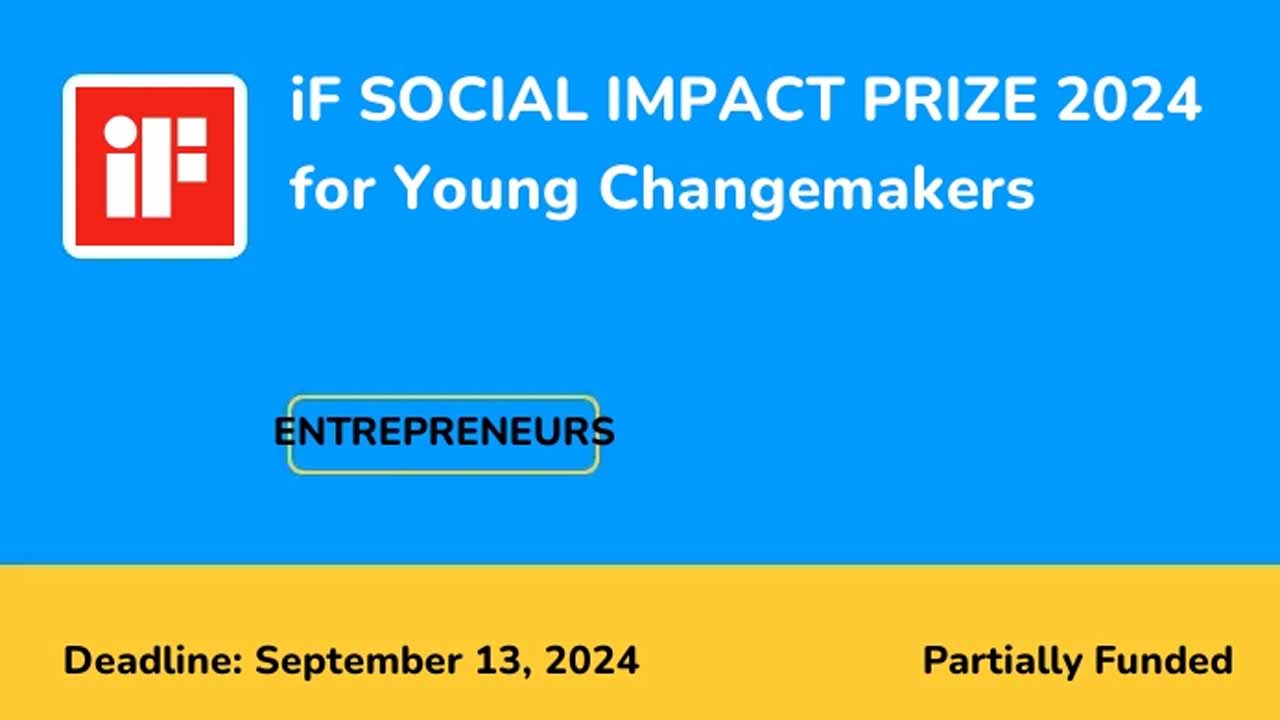Education
Strategies to Help Students Retain What They’ve Learned

One of the most common challenges students face is retaining what they’ve learned. Despite hours of studying and attending lectures, information can seem to slip away when it’s needed most. Retention issues can be frustrating and disheartening, but the good news is that there are effective strategies to help students hold on to the knowledge they acquire. Whether you’re a teacher, parent, or peer, here are practical techniques to boost memory and retention for high school and college students.
Brain Boost: How Students Can Improve Memory and Retention
1. Active Engagement

- What It Is: Active engagement involves interacting with the material in dynamic ways rather than passively reading or listening.
How to Implement:
- Teachers: Incorporate activities such as group discussions, hands-on projects, and interactive lessons. Encourage students to ask questions and participate actively.
- Parents: Discuss what your child is learning. Ask them to explain concepts to you, which reinforces their understanding.
- Peers: Form study groups where you can debate and discuss key topics. Teaching each other is a powerful way to solidify understanding.
2. Spaced Repetition

- What It Is: Spaced repetition is a technique where information is reviewed at increasing intervals over time.
How to Implement:
- Teachers: Schedule periodic reviews of previously covered material. Use cumulative quizzes to reinforce past lessons.
- Parents: Help your child create a study schedule that revisits topics regularly. Use tools like flashcards and spaced repetition apps.
- Peers: Set up regular review sessions. Quiz each other on past materials to ensure continuous reinforcement.
3. Mind Mapping

- What It Is: Mind mapping is a visual representation of information that shows relationships between concepts.
How to Implement:
- Teachers: Encourage students to create mind maps during lectures. Provide examples and templates to get them started.
- Parents: Help your child create mind maps for complex subjects. Use colorful markers and diagrams to make connections clearer.
- Peers: Work together to build mind maps for shared subjects. Compare and discuss different maps to deepen understanding.
4. Mnemonics and Memory Aids

- What It Is: Mnemonics are memory aids that use patterns, such as acronyms or rhymes, to help remember information.
How to Implement:
- Teachers: Teach students common mnemonics relevant to your subject. Encourage them to create their own.
- Parents: Help your child come up with mnemonic devices for difficult-to-remember information. Practice them together.
- Peers: Share mnemonic devices that have worked for you. Challenge each other to come up with creative memory aids.
5. Practical Application

- What It Is: Applying knowledge in practical contexts helps reinforce learning by showing its relevance.
How to Implement:
- Teachers: Incorporate real-world examples and applications in your lessons. Use case studies, simulations, and problem-solving exercises.
- Parents: Engage your child in activities that apply what they’re learning. For instance, if they’re studying chemistry, experiment with simple home science projects.
- Peers: Find ways to apply what you’ve learned in everyday situations. Discuss how theoretical knowledge can be used in practical settings.
6. Consistent Review and Self-Testing

- What It Is: Regular review and self-testing are critical for reinforcing long-term memory.
How to Implement:
- Teachers: Assign regular homework that requires a review of previous lessons. Use formative assessments to gauge retention.
- Parents: Create a review schedule with your child that includes self-testing. Use practice tests and quizzes available online.
- Peers: Quiz each other regularly on past and current material. Use tools like flashcards and practice exams to test knowledge.
7. Chunking Information

- What It Is: Chunking involves breaking down information into smaller, manageable units.
How to Implement:
- Teachers: Present information in chunks rather than all at once. Break lessons into clear, digestible parts.
- Parents: Help your child organize study materials into chunks. Use breaks to avoid cognitive overload.
- Peers: When studying together, break the material into sections and tackle one at a time. Review each chunk thoroughly before moving on.
8. Healthy Lifestyle and Mindset

- What It Is: A healthy lifestyle, including proper sleep, nutrition, and stress management, plays a crucial role in memory retention.
How to Implement:
- Teachers: Educate students on the importance of a healthy lifestyle for academic success. Encourage breaks and stress-relief activities.
- Parents: Ensure your child gets enough sleep, eats nutritious meals, and takes regular breaks. Promote activities like exercise and meditation.
- Peers: Support each other in maintaining a balanced lifestyle. Encourage healthy habits and offer emotional support during stressful times.
9. Use of Technology and Apps

- What It Is: Leveraging technology can enhance learning and retention through interactive and personalized tools.
How to Implement:
- Teachers: Integrate educational apps and digital tools into your curriculum. Use platforms that offer interactive and adaptive learning experiences.
- Parents: Introduce your child to educational apps that focus on retention, such as Anki for spaced repetition or Quizlet for flashcards.
- Peers: Share and recommend useful apps and tools with each other. Use online platforms to collaborate and study together.
10. Reflection and Summarization

- What It Is: Reflecting on what has been learned and summarizing key points helps consolidate memory.
How to Implement:
- Teachers: At the end of each lesson, ask students to summarize what they’ve learned. Use reflective writing assignments.
- Parents: Encourage your child to keep a learning journal. Ask them to write summaries of what they’ve studied.
- Peers: After study sessions, take turns summarizing key points. Discuss what you’ve learned and reflect on how it relates to previous knowledge.
Conclusion
Retention of learned material is a common challenge, but with the right strategies, students can significantly improve their ability to remember and apply knowledge. By actively engaging with the material, using spaced repetition, creating mind maps, and employing other effective techniques, both teachers and peers can make a substantial impact on a student’s learning journey. Remember, consistency and a supportive environment are key to helping students retain what they’ve learned, leading to greater academic success and confidence.
Scholarships
Worldwide University of Edinburgh Data Analytics Scholarship for Students 2024

The University of Edinburgh Business School is offering a range of scholarships for students pursuing the Master of Science in Data and Decision Analytics (Online) program in 2024. These scholarships are designed to support students from all nationalities and backgrounds, providing financial assistance to help them achieve their academic goals.
Scholarship Details
The University of Edinburgh Business School Data Analytics (Online) Scholarship Programme offers the following benefits:
- Scholarship Value: Awards of £5,000
- Nationality: Open to students from all countries
- Deadline: 01 July 2024
Eligibility Criteria
To be eligible for the University of Edinburgh Business School Data Analytics (Online) Scholarship Programme, applicants must meet the following criteria:
- Programme: Must be commencing study in September 2024 on the Master of Science in Data and Decision Analytics (Online) program.
- Academic Standing: Hold a minimum qualification of above-average academic achievement, typically 65% or above overall at the Masters level, with a distinction-level dissertation, or the overseas equivalent.
- English Competency: Must meet the English requirements for the PhD programme. The most commonly approved certificate is an IELTS, for which the minimum accepted score is 7.0 overall with at least 6.0 in each section.
Application Process
The application process for the University of Edinburgh Business School Data Analytics (Online) Scholarship Programme involves the following steps:
- Apply for Admission: Students must first apply for admission to the Master of Science in Data and Decision Analytics (Online) program at the University of Edinburgh Business School.
- Submit Scholarship Application: Eligible candidates should then submit the scholarship application through the university’s official portal.
- Evaluation and Selection: Applications are evaluated and selected by a panel of senior academic colleagues within the Business School.
Additional Funding Opportunities
The University of Edinburgh offers several other funding opportunities for students, including:
- Edinburgh Global Online Learning Masters Scholarships: Twelve scholarships covering full tuition fees for eligible part-time distance learning Masters programs.
- UK Government Postgraduate Loans: Available to UK residents for part-time or full-time postgraduate study.
- Other External Funding: Students can search for scholarships and funding opportunities on the University of Edinburgh website.
About the University of Edinburgh
The University of Edinburgh is a world-leading institution, ranked 22nd in the world in the QS 2024 rankings. The University of Edinburgh Business School is accredited by the Association to Advance Collegiate Schools of Business (AACSB), EFMD Quality Improvement System (EQUIS), and Association of MBAs (AMBA), highlighting its commitment to excellence in teaching and research.
For more information about the University of Edinburgh Business School Data Analytics (Online) Scholarship Programme and to apply, please visit the university’s website or contact the Business School directly.
Application Deadline: July 1, 2024.
For More Information,
Visit the Official Website
Scholarships
2024 Swansea University International Postgraduate Research Excellence Scholarships

Swansea University, a leading research institution in the UK, is offering the prestigious International Postgraduate Research Excellence Scholarships for the 2024 academic year. These highly competitive scholarships are designed to support exceptional international students pursuing postgraduate research degrees at the university.
Scholarship Benefits
The International Postgraduate Research Excellence Scholarships provide comprehensive financial support to recipients, including:
- A full tuition fee waiver for the duration of the research degree program
- A generous living allowance of £15,285 per year (2023/24 rate)
- Access to a world-class research environment and facilities
The scholarships are available for both Master’s by Research and Doctoral (PhD) programs at Swansea University.
Eligibility Criteria
To be eligible for the International Postgraduate Research Excellence Scholarships, applicants must meet the following criteria:
- Be an international student (non-UK/Republic of Ireland)
- Hold a relevant undergraduate degree with a minimum of a 2:1 classification or equivalent
- Meet the English language proficiency requirements for their chosen program
- Have applied for and met the entry requirements for a Master’s of Research or a Doctoral degree at Swansea University
Application Process
The application process for the International Postgraduate Research Excellence Scholarships involves the following steps:
- Apply for admission to a postgraduate research degree program at Swansea University.
- Submit the scholarship application through the university’s official portal, including a research proposal and supporting documents.
- Successful applicants will be notified of their scholarship award.
The application deadline for the 2024 scholarships is typically in early 2024. Interested students are encouraged to check the university’s website for the most up-to-date information on the application process and deadlines.
About Swansea University
Swansea University is a research-led institution known for its excellence in various fields, including engineering, science, and medicine. The university is ranked among the top 30 in the UK for research quality and impact, according to the Research Excellence Framework (REF) 2021.
International students at Swansea University benefit from a supportive learning environment, access to cutting-edge facilities, and opportunities for personal and professional growth. The university’s commitment to research and innovation makes it an ideal destination for aspiring postgraduate researchers.
For more information about the 2024 Swansea University International Postgraduate Research Excellence Scholarships and to apply, please visit the university’s website or contact the International Office.
Scholarships
iF Social Impact Prize 2024 (EUR 100,000)

The iF Social Impact Prize 2024, an initiative by the prestigious iF International Forum Design GmbH, is offering a total prize of €100,000 to support projects that contribute to solving urgent challenges and improving living conditions around the world. This international competition is open to companies, NGOs, foundations, design studios, social enterprises, and entrepreneurs who are working towards achieving the United Nations Sustainable Development Goals (SDGs).
Eligibility and Categories
To be eligible for the iF Social Impact Prize 2024, projects must:
- Already be established and implemented
- Contribute to solving well-known issues in any category of the UN SDGs 1-15
- Be submitted by companies, NGOs, foundations, design studios, social enterprises, or entrepreneurs (student concepts are not accepted)
Applicants can submit solutions related to the following SDG categories:
- No Poverty
- Zero Hunger
- Good Health and Well-being
- Quality Education
- Gender Equality
- Clean Water and Sanitation
- Affordable and Clean Energy
- Decent Work and Economic Growth
- Industry, Innovation, and Infrastructure
- Reduced Inequalities
- Sustainable Cities and Communities
- Responsible Consumption and Production
- Climate Action
- Life Below Water
- Life on Land
Benefits for Winners
The winning projects of the iF Social Impact Prize 2024 will receive:
- A share of the €100,000 prize money
- Publication on the iF Design Website for an unlimited period
- Introduction to a global design community, media, and the design-interested public
- Individual Winner Certificates
- Jury feedback and the opportunity to update their projects with the latest videos, photos, or news
Application Process and Deadlines
The application process for the iF Social Impact Prize 2024 involves creating an iF account, filling out the submission form, uploading photos, and providing a short project description. The submission deadline for the second round is September 13, 2024.
Evaluation Criteria
The international jury of experts from the social sector will evaluate and select the winning projects based on the following criteria:
- Problem-solving
- Beneficial experience
- Reasonable effort
- Moral and ethical standards
- Solidarity
Conclusion
The iF Social Impact Prize 2024 is a unique opportunity for organizations and individuals working towards positive social change to showcase their projects, compete for a substantial cash prize, and gain international recognition. By supporting projects aligned with the UN SDGs, the iF Social Impact Prize aims to empower those who make a difference and contribute to improving our society.
For more information and to apply, visit the iF Design Award website at ifdesign.com.
Method of Application
Visit The Official Website to Apply
Application Deadline: September 13, 2024.
For More Information,
Visit the Official Website
-

 News10 months ago
News10 months ago6 Ways To Attract a Rich Girl of Your Dream
-

 Finance9 months ago
Finance9 months agoWhich credit card is best for small businesses?
-

 Finance9 months ago
Finance9 months agoBest Business Credit Cards With 0% APR – February 2024
-

 Finance9 months ago
Finance9 months agoHow To Apply For A Chase Business Credit Card
-

 Finance11 months ago
Finance11 months agoLowe’s Credit Card: New Discounts on Lowe’s Purchases
-

 Finance9 months ago
Finance9 months agoLimited Time: Sign up for Chase Freedom Unlimited for a Year of Unlimited Cash Back!
-

 Entertainment11 months ago
Entertainment11 months agoNetflix Schedule January 2024
-

 Tech11 months ago
Tech11 months agoApple Vision Pro: $3,499 headset finally has a release date








